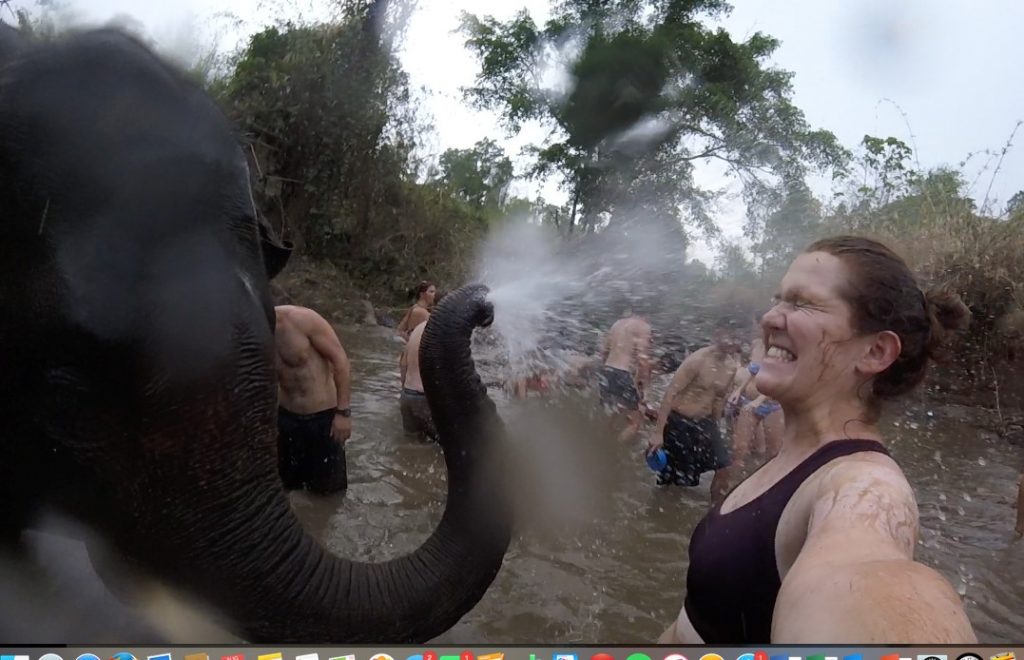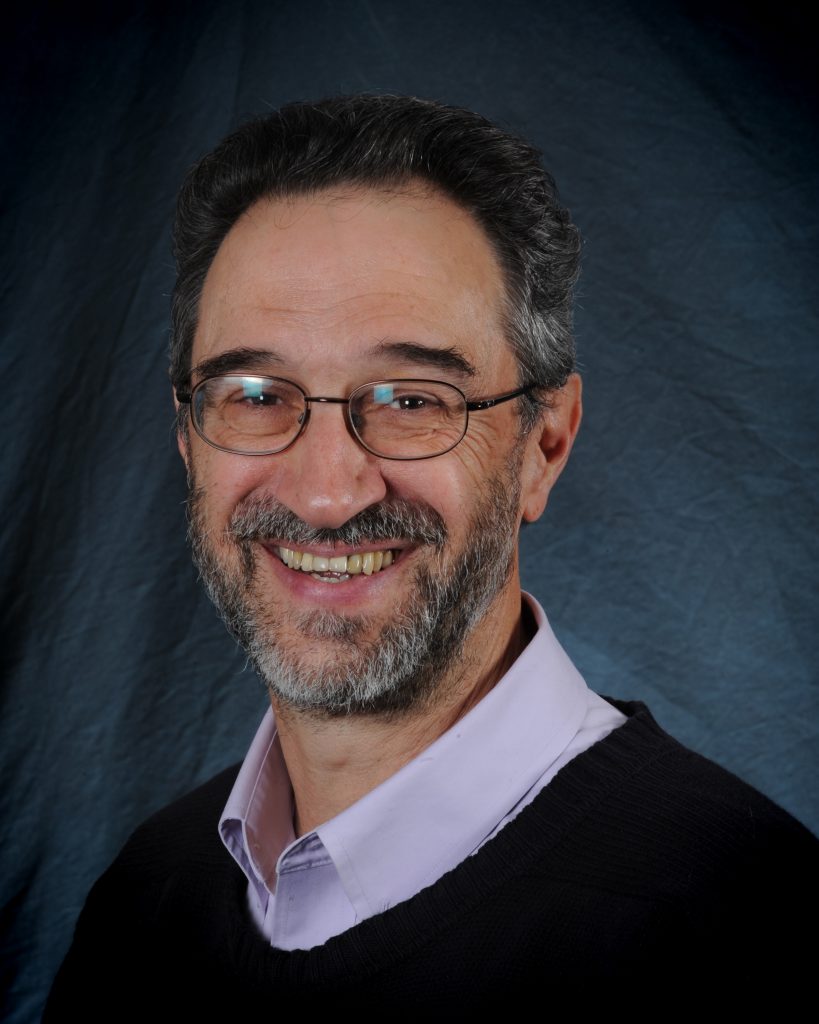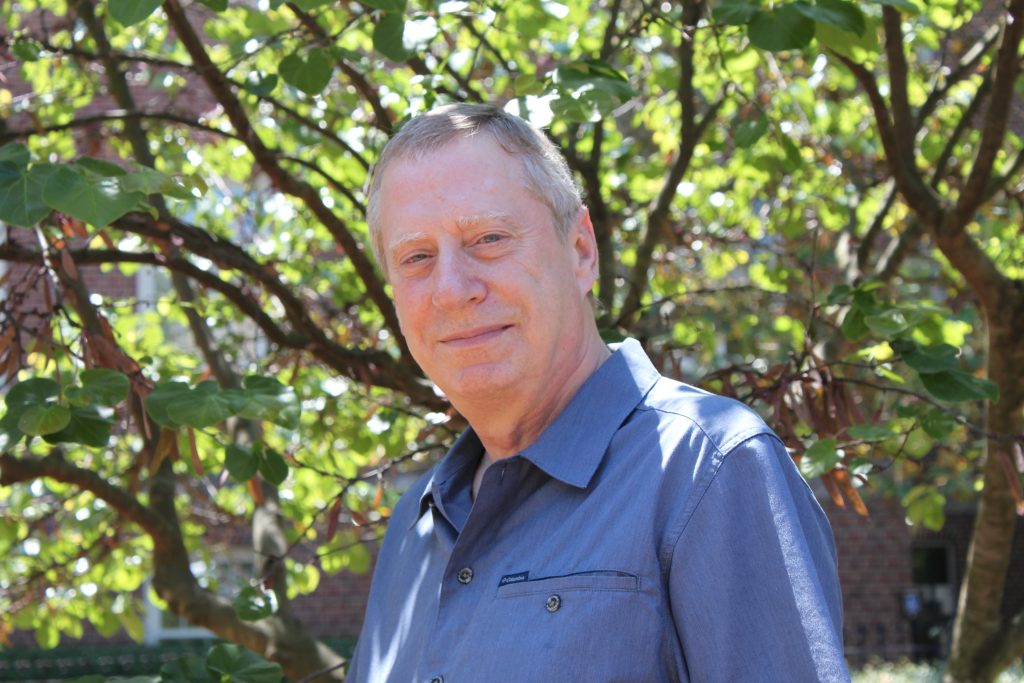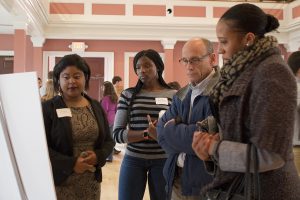
On a recent Monday morning, five consultants presented their recommendations on affordable housing options to a Carrboro town task force.
“We hope this will serve as a guiding tool for 10 years and beyond,” said Matt Kimble, standing near a backdrop of zoning maps in a town hall meeting room.
Kimble and his team members don’t work for a high-priced consulting firm. They are seniors doing the work pro-bono, for credit, as part of the required capstone course in the public policy department in UNC’s College of Arts and Sciences.
This semester, about 40 students have worked on nine projects for government and nonprofit entities. Topics include solar energy, access to food and health care, historic preservation and tourism, water quality restoration and arts-related economic development, among others.
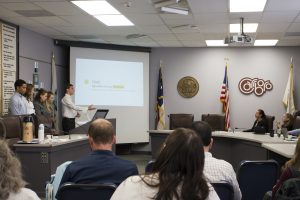
The senior capstone project allows students to apply the interdisciplinary analytical skills they’ve been developing over four years to address major public policy problems, said Anna Krome-Lukens, lecturer and director of experiential education.
“Public policy is all well and good when you think about it theoretically,” she said, “but when you apply that knowledge to a real-life situation, you experience both the challenges and the unpredictability of the work, but also the importance of it.”
After the meeting, Emmy Johnson, a member of Kimble’s team, echoed Krome-Lukens’ sentiments about the semester-long intensive study. “I think it’s really valuable to know more about what working in the policy world is going to be like for us,” she said.
Faculty-mentored, student-driven
Krome-Lukens (the students call her “Dr. K-L”) and public policy lecturer Daisha Merritt sat in the audience at the Carrboro town hall meeting, listening to the students’ presentations. They teach the capstone course and serve as mentors on the projects, but Merritt makes it clear that students drive the process.
Seniors are assigned to teams and projects at the beginning of the semester. They set roles and responsibilities, draft work plans, conduct research, collect relevant data and meet with their community partners either virtually or face-to-face.
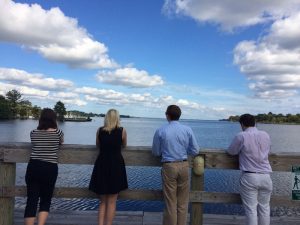
Merritt and her students drove about four hours to Elizabeth City, for instance, to meet with their client on the restoration of the endangered Little River watershed in Pasquotank County.
“My role is to facilitate and moderate and guide, but the students run the meetings,” she said. “They learn professionalism and team-building, and I have been very happy with the level and caliber of what the students produce.”
Alumni value the capstone experience
Public policy majors Logan Porter and Eliza Salkeld, who both graduated last May, said they are using the skills they learned during the capstone course in their current jobs.
“It was a good stepping stone to what I’m doing now,” said Porter, now a consultant at NetSuite, a technology company in Chicago. “I have sets of deliverables and day-to-day expectations from my clients, and the presentation and writing skills we developed — I’m doing that every single day.”
His capstone team worked with the Durham Living Wage Project, a nonprofit that offers a voluntary certification program to recognize businesses and nonprofits that pay a living wage.

“In job interviews, I was able to mention my capstone experience as a practical example of what I had done,” he said. “It’s a very tangible thing you can draw upon.”
Salkeld, who minored in mathematical decision sciences, is working at a senior living community in Raleigh. She hopes to attend graduate school and work in health care policy for seniors.
When she was younger, a member of Salkeld’s family was diagnosed with Alzheimer’s disease. That heightened her interest in the issue, and the capstone course helped her to narrow her career goals.
“I was trying to figure out, ‘Do I want to be actually pushing legislation?’ I realized I liked the research and analytics more, the behind-the-scenes work,” she said. Salkeld’s project involved assessing park usage for the Goldsboro Parks and Recreation Department “and I got great exposure to the research process, everything from running a survey to the analytics afterward.”
“As a team, we all had different ideas and approaches, and we had to talk through those and decide what to do,” she added. “I find that even now in the workforce, I’m reflecting back on those experiences.”
Showcasing their work, getting client feedback
In addition to presenting their ideas to their community partners, students showcased their work in a poster session Nov. 30 in Gerrard Hall.
Consultant Janet Kagan worked in tandem with a capstone team to assess how the Kenan Institute for the Arts and the University of North Carolina School of the Arts, both in Winston-Salem, could work together to encourage arts-focused economic development in surrounding neighborhoods. The student team did case studies on three cities — Greensboro, Durham and Richmond — that had comparable demographics, town-gown relations and strength in the arts.
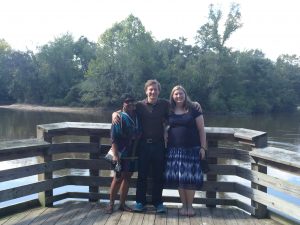
At the session, Kagan chatted with the students about their poster said she eagerly awaited their full report.
“Their intellect is extraordinary,” said Kagan. “Their passion and personal experiences were so broad that they in turn asked questions that we had not thought of, and they challenged presumptions about the issues.”
Capstone student Kimberly Clarida said her minors in entrepreneurship and education really came together on the Kenan Institute for the Arts project.
”When I started the research, I [wondered], ‘how do I apply that?’” she said. “I learned how to be innovative and to examine how schools and communities interact.”
Ivy Hardy, who worked on a project that assessed the feasibility of developing a heritage trail/ corridor for the Historic Black Towns and Settlements Alliance, said she was grateful for the experience to apply real-world skills and work with capstone faculty mentors.
“As a December graduate, [the process] was very validating.”
By Kim Weaver Spurr

